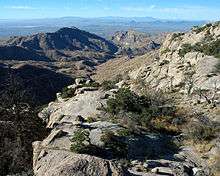1775
1775 (MDCCLXXV) was a common year starting on Sunday of the Gregorian calendar and a common year starting on Thursday of the Julian calendar, the 1775th year of the Common Era (CE) and Anno Domini (AD) designations, the 775th year of the 2nd millennium, the 75th year of the 18th century, and the 6th year of the 1770s decade. As of the start of 1775, the Gregorian calendar was 11 days ahead of the Julian calendar, which remained in localized use until 1923.
| Millennium: | 2nd millennium |
|---|---|
| Centuries: | |
| Decades: | |
| Years: |
| 1775 by topic |
|---|
| Arts and science |
|
| Countries |
| Lists of leaders |
| Birth and death categories |
|
| Establishments and disestablishments categories |
|
| Works category |
|
| Gregorian calendar | 1775 MDCCLXXV |
| Ab urbe condita | 2528 |
| Armenian calendar | 1224 ԹՎ ՌՄԻԴ |
| Assyrian calendar | 6525 |
| Balinese saka calendar | 1696–1697 |
| Bengali calendar | 1182 |
| Berber calendar | 2725 |
| British Regnal year | 15 Geo. 3 – 16 Geo. 3 |
| Buddhist calendar | 2319 |
| Burmese calendar | 1137 |
| Byzantine calendar | 7283–7284 |
| Chinese calendar | 甲午年 (Wood Horse) 4471 or 4411 — to — 乙未年 (Wood Goat) 4472 or 4412 |
| Coptic calendar | 1491–1492 |
| Discordian calendar | 2941 |
| Ethiopian calendar | 1767–1768 |
| Hebrew calendar | 5535–5536 |
| Hindu calendars | |
| - Vikram Samvat | 1831–1832 |
| - Shaka Samvat | 1696–1697 |
| - Kali Yuga | 4875–4876 |
| Holocene calendar | 11775 |
| Igbo calendar | 775–776 |
| Iranian calendar | 1153–1154 |
| Islamic calendar | 1188–1189 |
| Japanese calendar | An'ei 4 (安永4年) |
| Javanese calendar | 1700–1701 |
| Julian calendar | Gregorian minus 11 days |
| Korean calendar | 4108 |
| Minguo calendar | 137 before ROC 民前137年 |
| Nanakshahi calendar | 307 |
| Thai solar calendar | 2317–2318 |
| Tibetan calendar | 阳木马年 (male Wood-Horse) 1901 or 1520 or 748 — to — 阴木羊年 (female Wood-Goat) 1902 or 1521 or 749 |
| Wikimedia Commons has media related to 1775. |
Events
Summary
The American Revolution begins this year, with the first military engagement being the April 19 Battles of Lexington and Concord on the day after Paul Revere's now-legendary ride. The Second Continental Congress takes various steps toward organizing an American government, appointing George Washington commander-in-chief (June 14), Benjamin Franklin postmaster general (July 26) and creating a Continental Navy (October 13) and a Marine force (November 10) as landing troops for it, but as yet the 13 colonies have not declared independence, and both the British (June 12) and American (July 15) governments make laws. On July 6, Congress issues the Declaration of the Causes and Necessity of Taking Up Arms and on August 23, King George III of England declares the American colonies in rebellion, announcing it to Parliament on November 10. On June 17, two months into the colonial siege of Boston, at the Battle of Bunker Hill, just north of Boston, British forces are victorious, but only after suffering severe casualties and after Colonial forces run out of ammunition, Fort Ticonderoga is taken by American forces in New York Colony's northern frontier, and American forces unsuccessfully invade Canada, with an attack on Montreal defeated by British forces on November 13 and an attack on Quebec repulsed December 31.
Human knowledge and mastery over nature advances when James Watt builds a successful prototype of a steam engine, and a scientific expedition continues as Captain James Cook claims the South Georgia and South Sandwich Islands in the south Atlantic Ocean for Britain. Nature's power over humanity is dramatically demonstrated when the Independence Hurricane (August 29 – September 13) devastates the east coast of North America, killing 4,173, and when, on the western side of the North American continent, Tseax Cone erupts in the future British Columbia, as well as when a smallpox epidemic begins in New England. Smallpox was then cured by Edward Jenner.
January–June
- January – The Habsburg Monarchy forces the Ottoman Empire to cede Bukovina to its rule.
- January 5 – Wolfgang Amadeus Mozart finishes a Sonata for Keyboard in C.
- January 17 – Second voyage of James Cook: Captain James Cook takes possession of South Georgia for the Kingdom of Great Britain.
- February 9 – American Revolution: The Parliament of Great Britain declares the Province of Massachusetts Bay to be in rebellion.
- February 15 – Pope Pius VI succeeds Pope Clement XIV as the 250th pope.
- February 26 – The British East India Company factory on Balambangan Island is destroyed by Moro pirates.[1]
- March 6 – Raghunathrao, Peshwa of the Maratha Empire in India, signs the Treaty of Surat with the British Governor-General Warren Hastings in Bombay ceding the territories of Salsette and Bassein to the British East India Company along with part of the revenues from Surat and Bharuch districts in return for military assistance. This leads to the First Anglo-Maratha War fought between the British and the Marathas, ending with the Treaty of Salbai in 1782.
- March 17 – Catherine the Great of Russia issues a manifesto prohibiting freed serfs from being returned to serfdom.[2]
- March 23 – American Revolution: Patrick Henry, a delegate to the Second Virginia Convention after the Virginia House of Burgesses was disbanded by the Royal Governor, delivers his "Give me Liberty, or give me Death!" speech at St. John's Church in Richmond, Virginia.
- April 18 – American Revolution: Paul Revere and William Dawes, instructed by Dr. Joseph Warren, ride from Boston to Lexington to warn John Hancock and Sam Adams that British forces are coming to take them prisoner and to seize colonial weapons and ammunition in Concord.
- April 19 – American Revolution: Hostility between Britain and its American colonies explodes into bloodshed at the Battles of Lexington and Concord[3] igniting the American Revolution.
- May 10
- American Revolution: The Second Continental Congress meets, elects John Hancock president, raises the Continental Army under George Washington as commander and authorizes the colonies to adopt their own constitutions.
- American Revolution: Ethan Allen and Benedict Arnold, leading the Green Mountain Boys of Vermont, capture Fort Ticonderoga.
- May 17 – American Revolution: The Continental Congress bans trade with Canada.
- June 11 – Battle of Machias, the first naval engagement of the American Revolutionary War.
- June 12 – American Revolution:
- The British forces offer a pardon to all colonists who lay down their arms.
- Action by citizens of Machias, Maine, in capturing British ships recognises the existence of a United States Merchant Marine.
- June 14 – American Revolution: The Continental Congress names George Washington as commander of the Continental Army.
- June 16 – Post of Chief Engineer of the Continental Army created.
- June 17 – American Revolution: Two months into the colonial siege of Boston, British open fire on Breed's Hill on Charles Town Peninsula. After 3 charges, the British take the hill in the misnamed Battle of Bunker Hill.
- June 19 – Post of Commanding General was created by the Continental Congress.
July–December
- July 3 – American Revolution: George Washington takes command of the 17,000-man Continental Army at Cambridge.
- July 5 – American Revolution: The Continental Congress sends the Olive Branch Petition, hoping for a reconciliation.
- July 6 – American Revolution: The Continental Congress issues Declaration of the Causes and Necessity of Taking Up Arms, which contains the words: "Our cause is just. Our union is perfect... being with one mind resolved to die freemen rather than to live slaves...".
- July 26 – The Second Continental Congress appoints Benjamin Franklin to be the first Postmaster General of what later becomes the United States Post Office Department.
- July 30 – Second voyage of James Cook: HMS Resolution (1771) anchors off the south coast of England, Captain Cook having completed the first east-about global circumnavigation.
- August 18 – Tucson was founded.
- August 21 – American Revolution – Siege of Fort St. Jean: American rebels launch an invasion of Canada.
- August 23 – American Revolution: Refusing to even look at the Olive Branch Petition, King George issues a Proclamation of Rebellion against the American colonies.
- August 29 – September 12 – The Independence Hurricane from South Carolina to Nova Scotia kills 4,170, mostly fishermen and sailors.
- September 25 – American Revolution: Siege of Fort St. Jean – Battle of Longue-Pointe: Thirteen Colonies revolutionary forces under Maj. Ethan Allen attack Montreal in Quebec, commanded by British General Guy Carleton. Allen's forces are defeated, and Allen himself is captured and held on British ships until he is later released.
- October – The Sayre Plotters attempt to kidnap George III of the United Kingdom.
- October 13 – American Revolution: The Continental Congress orders the establishment of the Continental Navy (later the United States Navy).
- October 26 – American Revolution: George III announces to Parliament that the American colonies are in an uprising and must be dealt with accordingly.
- November – American Revolution: Colonel Richard Richardson's South Carolina revolutionaries march through Ninety-Six District in what becomes known as the Snow Campaign, effectively ending all major support for the Loyalist cause in the backcountry of South Carolina.
- November 10 – American Revolution: The Continental Congress passes a resolution creating the Continental Marines to serve as landing troops for the recently created Continental Navy (the Marines are disbanded at end of the war in April 1783 but reformed on July 11, 1798 as the United States Marine Corps).
- November 13 – American Revolution – Battle of Montreal: American forces under Brigadier General Richard Montgomery capture Montreal. British General Guy Carleton escapes to Quebec.
- November 17 – John Murray, 4th Earl of Dunmore offers freedom to slaves who join the loyalist army, thus losing the support of most planters, who see slaves as their vital livelihood.
- November 17 – The city of Kuopio, Finland (belonging to Sweden at this time) is founded by King Gustav III of Sweden.
- December 5 – American Revolution: Henry Knox begins his journey to Cambridge, Massachusetts with the artillery that has been captured from Fort Ticonderoga.
- December 31 – American Revolution: Battle of Quebec: British forces repulse an attack by Continental Army generals Richard Montgomery and Benedict Arnold at Quebec.
Date unknown
- Industrial Revolution in Great Britain.
- James Watt's 1769 steam engine patent is extended to June 1800 by Act of Parliament and the first engines are built under it.[4][5]
- John Wilkinson invents and patents a new kind of boring machine.
- Catherine the Great decrees a Statute for the Administration of the Provinces of the Russian Empire dividing the country into provinces and districts for efficient government.[2]
- Wolfgang Amadeus Mozart writes his five violin concertos in Salzburg at about this date.
- A smallpox epidemic begins in New England.
- Tseax Cone in northwestern British Columbia erupts.
- The Calcutta Theatre is inaugurated.
- Schneur Zalman of Liadi founds a Hasidic Jewish dynasty called Chabad-Lubavitch.
- Typhoon Liengkieki devastates the Pacific atoll of Pingelap.
Births
.jpg)
_(cropped).jpg)
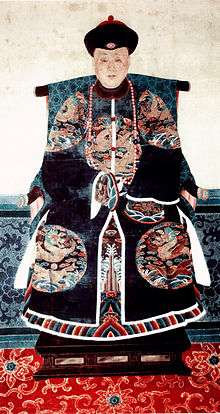


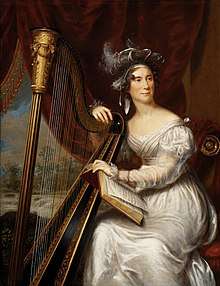
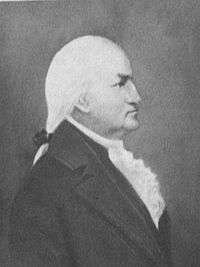
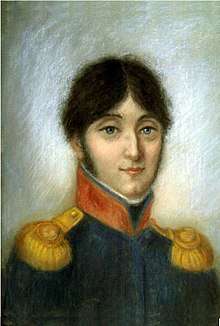
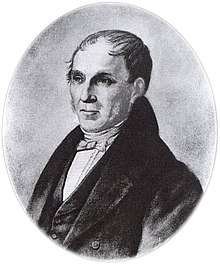
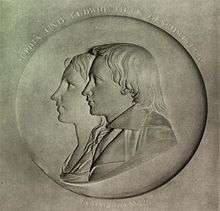
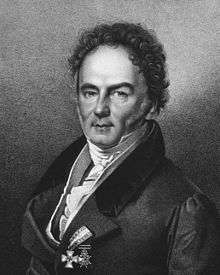


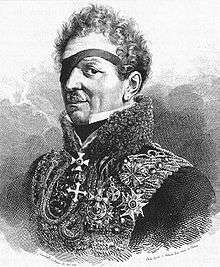
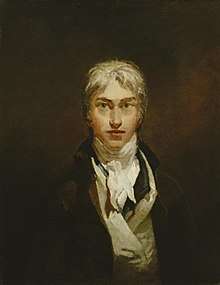
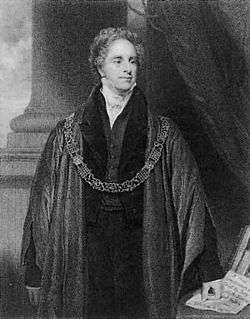
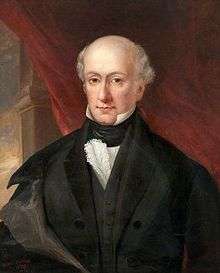
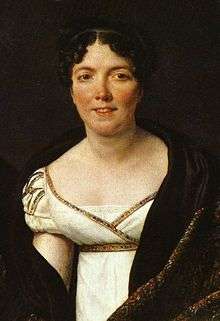
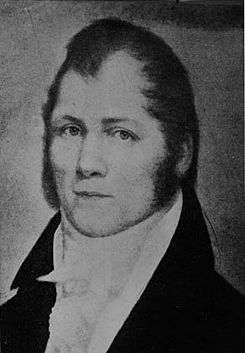
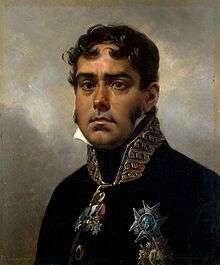
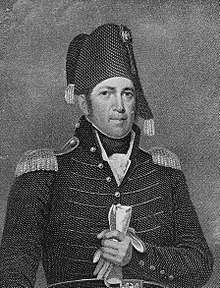
.jpg)

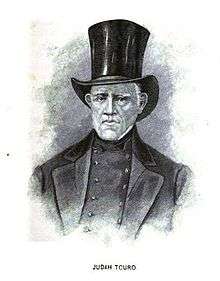
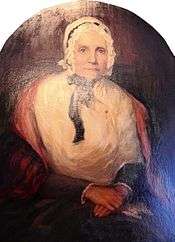
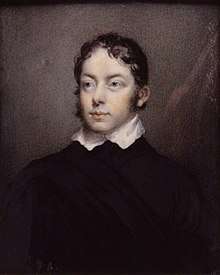
.jpg)
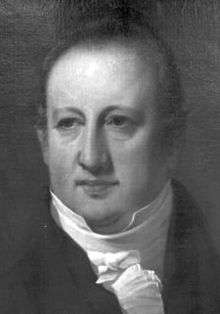

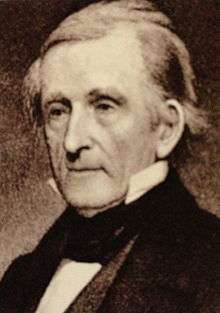
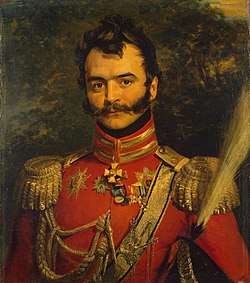
.jpg)



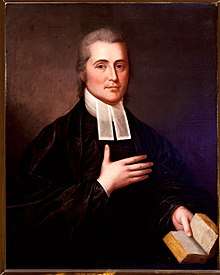


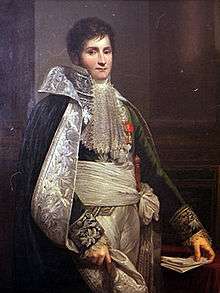


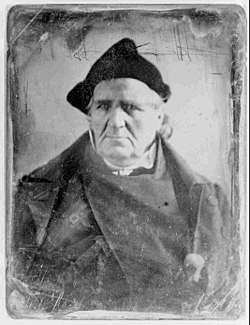

January–March
- January 2 – Henry Tufton, 11th Earl of Thanet, English cricketer (d. 1849)
- January 3 – Francis Caulfeild, 2nd Earl of Charlemont, Irish politician (d. 1863)
- January 4
- George Weare Braikenridge, Antiquarian (d. 1856)
- Carlo, Duke of Calabria, Italian prince (d. 1778)
- January 6
- Date Narimura, Daimyō (d. 1796)
- Horace St Paul, English soldier and Member of Parliament (d. 1840)
- January 7 – Thomas Amyot, English antiquarian (d. 1850)
- January 9
- Juan Francisco Larrobla, Uruguayan politician (d. 1842)
- Antonio Villavicencio, statesman and soldier of New Granada (d. 1816)
- January 10 – James Sewall Morsell, United States federal judge (d. 1870)
- January 11 – James Matlack (d. 1840)
- January 12 – Joseph Gist, United States House of Representatives (d. 1836)
- January 13 – Stanisław Kostka Zamoyski, Polish noble (d. 1856)
- January 15 – Giosuè Sangiovanni, Italian zoologist (d. 1849)
- January 18
- Pedro Moreno (d. 1817)
- Evelyn Pierrepont, British Member of Parliament (d. 1801)
- January 19
- Hudson Gurney, English antiquary and verse-writer (d. 1864)
- George Pyke, Canadian politician (d. 1851)
- January 20 – André-Marie Ampère, French physicist and mathematician (d. 1836)
- January 22
- Manuel García, Spanish singer, teacher, composer (d. 1832)
- Abraham H. Schenck, United States House of Representatives (d. 1831)
- January 23
- Pietro Colletta, Neapolitan general and historian (d. 1831)
- José Fernández Salvador, Ecuadorian politician and jurist (d. 1853)
- John Rubens Smith, London-born painter (d. 1849)
- January 27 – Friedrich Wilhelm Joseph Schelling, German philosopher (d. 1854)
- January 28
- Lady Charlotte Bury, English novelist (d. 1861)
- James Brown Mason, American physician and legislator (d. 1819)
- January 30 – Walter Savage Landor, English writer and poet (d. 1864)
- January 31
- Giordano Bianchi Dottula (d. 1846)
- John Richard Farre, English physician (d. 1862)
- February 1
- Philippe de Girard, French engineer and inventor of the first flax spinning frame in 1810 (d. 1845)
- Jochum Nicolay Müller, Norwegian naval officer who (d. 1848)
- February 2 – Gurun Princess Hexiao of the Manchu Dynasty (d. 1823)
- February 3
- Maximilien Sébastien Foy, French military leader (d. 1825)
- Louis-François Lejeune, French general, painter and printmaker (d. 1848)
- February 8
- Jacob Liv Borch Sverdrup, Norwegian educator (d. 1841)
- Antonio Bertoloni, Italian botanist who made extensive studies of Italian plants (d. 1869)
- Thomas Liddell, 1st Baron Ravensworth, British politician (d. 1855)
- February 9
- Farkas Bolyai, Hungarian mathematician (d. 1856)
- Theodor Hell, pseudonym of Karl Gottfried Theodor Winkler (d. 1856)
- February 10
- James Wilkes Maurice, Royal Navy officer during the French Revolutionary Wars and Napoleonic Wars (d. 1857)
- Ádám Récsey, Prime Minister of Hungary (October 3–7, 1848) (d. 1852)
- Charles Lamb, English essayist (d. 1834)
- February 11 – William Hall, American politician (d. 1856)
- February 12
- Louisa Adams, First Lady of the United States, wife of President John Quincy Adams (d. 1852)
- Charles Lloyd, poet (d. 1839)
- February 13 – Benjamin Gorham, American politician (d. 1855)
- February 14 – William Clift (d. 1849)
- February 15
- Paul Allen, American author and editor (d. 1826)
- Miguel Ramos Arizpe, Mexican priest (d. 1843)
- Simmons Jones Baker, American politician (d. 1853)
- February 16 – Zalmon Wildman, United States Representative from Connecticut (d. 1835)
- February 17
- Heinrich Jacob Aldenrath, portrait painter (d. 1844)
- Frederick Garling, English attorney and solicitor (d. 1848)
- February 18 – Thomas Girtin, English painter and etcher (d. 1802)
- February 19
- John Bibby, founder of the British Bibby Line shipping company (d. 1840)
- Giovanni Battista Comolli, Italian sculptor (d. 1831)
- February 20
- Guy-Victor Duperré, French naval officer and Admiral of France (d. 1846)
- Israel Gregg, first captain of the historic steamboat Enterprise (d. 1847)
- John Starr, merchant and political figure in Nova Scotia (d. 1827)
- February 21
- Jean-Baptiste Girard, soldier (d. 1815)
- Claudius Herrick, American educator and minister (d. 1831)
- February 22
- Gardiner Henry Guion (d. 1832)
- William Seymour, United States Representative from New York (d. 1848)
- February 24
- Claudius Hunter (d. 1851)
- Sir Claudius Hunter, 1st Baronet, Lord Mayor of London (d. 1851)
- Matěj Kopecký, Czech puppeteer (d. 1847)
- Edward St Maur, 11th Duke of Somerset (d. 1855)
- February 25 – John Caldwell, businessman and politician in Lower Canada (d. 1842)
- February 26 – Adolf Stieler, German cartographer and lawyer (d. 1836)
- February 28 – Sophie Tieck (d. 1833)
- March 3 – Henry Prittie, 2nd Baron Dunalley, British politician (d. 1854)
- March 4
- Cuthbert Powell, United States House of Representatives (d. 1849)
- Johann Baptist von Lampi the Younger, Austrian portrait painter (d. 1837)
- March 5
- Charlotte Richardson, British poet (d. 1825)
- Adam Elias von Siebold, German Gynecologist (d. 1828)
- March 9
- Jean Kickx (d. 1831)
- Constance Mayer (d. 1821)
- March 10
- Marc-Antoine Jullien de Paris, French journalist (d. 1848)
- Sir David Wedderburn, 1st Baronet (d. 1858)
- March 11
- Nils Landmark, Norwegian politician (d. 1859)
- Pierre Jean François Turpin, French botanist and illustrator (d. 1840)
- March 12
- Joseph Chitty, English lawyer and legal writer (d. 1841)
- Henry Eckford, Scottish-born American shipbuilder, naval architect, industrial engineer, entrepreneur (d. 1832)
- Michel Grendahl, Norwegian politician (d. 1849)
- James Welsh, English officer in the Madras Army of the East India Company (d. 1861)
- March 14
- Samuel Street Jr., businessman in Upper Canada (d. 1844)
- Samuel Street, Jr., Upper Canada businessman (d. 1844)
- March 15 – Juan Bautista Arismendi, Venezuelan patriot and general of the Venezuelan War of Independence (d. 1841)
- March 17 – Ninian Edwards, founding political figure of the state of Illinois (d. 1833)
- March 19 – Ramsay Richard Reinagle, English painter (d. 1862)
- March 22
- Johan Collett, Norwegian politician and public administrator (d. 1827)
- Jack Crawford, sailor of the Royal Navy known as the "Hero of Camperdown (d. 1831)
- Armand Gouffé, 19th-century French poet (d. 1845)
- March 23 – William Haseldine Pepys (d. 1856)
- March 24
- Pauline Auzou, French painter and art instructor (d. 1835)
- Pierre Berthezène, French Army general (d. 1847)
- Muthuswami Dikshitar, South Indian poet and composer (d. 1835)
- March 25 – John Johnston, United States Indian agent (d. 1861)
- March 26 – Thomas Monteagle Bayly, eighteenth and nineteenth century politician (d. 1834)
- March 27 – Nicolai Abraham Holten, Danish civil servant and director of Øresund Custom House (d. 1850)
- March 28 – Johann Heinrich Gossler, Hamburg banker and grand burgher (d. 1842)
- March 30 – Hieronymus Karl Graf von Colloredo-Mansfeld, Austrian corps commander during the Napoleonic Wars (d. 1822)
April–June
- April 2
- John Higton, English animal painter (d. 1827)
- Calvin Jones, American politician (d. 1846)
- Moses Walton, nineteenth-century Virginia farmer who served in both houses of the Virginia General Assembly (d. 1847)
- April 4 – Dutch Sam, British boxer (d. 1816)
- April 5 – Johann Nepomuk Rust, Austrian surgeon (d. 1840)
- April 6 – Edward Wynne-Pendarves, English politician (d. 1853)
- April 7
- Eliza Jumel, American socialite (d. 1865)
- Francis Cabot Lowell, American businessman for whom the city of Lowell (d. 1817)
- Francis Cabot Lowell, United States businessman (d. 1817)
- Louis Barbe Charles Sérurier, French diplomat (d. 1860)
- April 8
- Antoine Charles Cazenove (d. 1852)
- Adam Albert von Neipperg, Austrian general and statesman (d. 1829)
- Thomas Powys, 2nd Baron Lilford, British peer (d. 1825)
- April 9 – Martim Francisco Ribeiro de Andrada, Brazilian politician, leader in Brazil's independence and government (d. 1844)
- April 10 – Carl Wigand Maximilian Jacobi, German psychiatirst (d. 1858)
- April 12
- Christian Samuel Theodor Bernd, German linguist and heraldist (d. 1854)
- Vito Nunziante, Italian general (d. 1836)
- April 13 – Adolph Henke, German physician (d. 1843)
- April 14
- Karl Becker, German philologist (d. 1849)
- John Philip, missionary in South Africa (d. 1851)
- April 16
- Sylvester Maxwell, American lawyer and legislator (d. 1858)
- Charles Stewart, British bishop (d. 1837)
- April 19 – Samuel King, minister (d. 1842)
- April 21
- Alexander Anderson, American physician and illustrator (d. 1870)
- Edward Smith-Stanley, 13th Earl of Derby, British politician (d. 1851)
- April 22
- Georg Hermes, German Roman Catholic theologian (d. 1831)
- Henry Ryan, US-Canadian Methodist minister (d. 1833)
- April 23 – J. M. W. Turner, English Romantic landscape painter, watercolourist and printmaker (d. 1851)
- April 25
- William Warren Baldwin, Canadian politician (d. 1844)
- Alexander Johnston, Sri Lankan judge (d. 1849)
- Carlota Joaquina of Spain, Queen consort of Portugal as wife of John VI (d. 1830)
- April 27 – Pietro Ostini, Catholic cardinal (d. 1849)
- April 28
- William Capel, Sportsman and clergyman (d. 1854)
- Loftus William Otway, British Napoleonic Wars general (d. 1835)
- April 29 – Samuel King, Presbyterian minister, a founder of the Cumberland Presbyterian Church (d. 1842)
- April 30
- Guillaume Dode de la Brunerie, Marshal of France (d. 1851)
- Calvin Fillmore, American farmer and politician from New York (d. 1865)
- George Kinloch, Scottish reformer and politician (d. 1833)
- May 1 – Angélique Mongez, French Neoclassical artist (d. 1855)
- May 3 – John Hansen Sørbrøden, Norwegian farmer (d. 1857)
- May 5
- Marie-Anne Calame, Swiss Vitreous enamel miniaturist and a pietist philanthropist educator (d. 1834)
- Johann Christoph Friedrich Klug, German entomologist (d. 1856)
- Alexander McNair, American frontiersman and politician (d. 1826)
- Pablo Morillo, Spanish general (d. 1837)
- May 6
- Hans Henrich Maschmann, Norwegian pharmacist (d. 1860)
- Mary Martha Sherwood, author (d. 1851)
- May 8 – George Gwilt the younger, Architect (d. 1856)
- May 9 – Jacob Brown, United States general (d. 1828)
- May 10
- Antoine Charles Louis de Lasalle, French cavalry general during the Revolutionary and Napoleonic Wars (d. 1809)
- William Phillips, English mineralogist and geologist (d. 1828)
- May 12 – George Whitmore, British Army general (d. 1862)
- May 14 – Micah Brooks, United States general (d. 1857)
- May 15 – Enevold Steenblock Høyum, Norwegian military officer who served as a representative at the Norwegian Constitutional Assembly (d. 1830)
- May 17
- Sir John Beckett, 2nd Baronet, British politician (d. 1847)
- Daniel LeRoy, Attorney General for the Michigan Territory (d. 1858)
- May 19 – Antonín Jan Jungmann, Czech physician (d. 1854)
- May 21 – Lucien Bonaparte, French statesman (d. 1840)
- May 24
- Sir Charles Ogle, 2nd Baronet, Royal Navy officer (d. 1858)
- Matthew Whitworth-Aylmer, 5th Baron Aylmer, British Army general (d. 1850)
- May 25 – Pelagio Palagi, Italian painter (d. 1860)
- May 28 – Thomas Graves, 2nd Baron Graves, British politician (d. 1830)
- May 29 – Nathan Cutler, American politician from Maine (d. 1861)
- May 31
- Charles Digby, Canon of Windsor from 1808 to 1841 (d. 1841)
- Charles Jackson, United States lawyer and jurist (d. 1855)
- June 4 – Francesco Molino, Italian guitarist (d. 1847)
- June 8 – Henry Boehm, American clergyman and pastor (d. 1875)
- June 9 – Georg Friedrich Grotefend, German epigraphist and philologist (d. 1853)
- June 10 – James Barbour, American politician (d. 1842)
- June 12
- Francis Bloodgood (d. 1840)
- Johann Baptist Malfatti von Monteregio, Physician (d. 1859)
- Karl Freiherr von Müffling, Prussian Generalfeldmarschall (d. 1851)
- June 13 – Antoni Radziwiłł, Polish politician (d. 1833)
- June 14 – André Bruno de Frévol de Lacoste, French general of the First Empire (d. 1809)
- June 15
- Elizabeth Benger, English biographer (d. 1827)
- Paul Delano (d. 1842)
- Carlo Porta, Italian poet (d. 1821)
- June 16 – Judah Touro, American businessman (d. 1854)
- June 17 – Alexander Cowan, Scottish papermaker and philanthropist (d. 1859)
- June 18 – Orsamus Cook Merrill, American politician (d. 1865)
- June 19 – Friedrich August Peter von Colomb, German general (d. 1854)
- June 19 – Vardry McBee, saddlemaker and philanthropist (d. 1864)
- June 20 – Jacques Frédéric Français, French engineer and mathematician (d. 1833)
- June 22
- Johannes Flüggé, German botanist and physician who was a native of Hamburg (d. 1816)
- Camillo Ranzani, Italian priest and a naturalist (d. 1841)
- June 24 – John Kempthorne, English clergyman and hymnwriter (d. 1838)
- June 25 – John Stevenson Salt (d. 1845)
- June 26
- Jean-Jacques Desvaux de Saint-Maurice, French general of the Napoleonic Wars (d. 1815)
- John Swaine, English draughtsman and engraver (d. 1860)
July–September
- June 29 – Thomas Boyle (d. 1825)
- June 30 – William Thompson, Irish philosopher (d. 1833)
- July 1 – Cephas Thompson, American artist (d. 1856)
- July 2 – Aaron Peasley (d. 1837)
- July 3 – Antoine Philippe, Duke of Montpensier (d. 1807)
- July 5 – William Crotch, English composer, organist and artist (d. 1847)
- July 8
- William Davies, United States federal judge (d. 1829)
- Lucy Mack Smith, mother of Joseph Smith (d. 1856)
- July 9 – Matthew Lewis, British politician (d. 1818)
- July 11 – Joseph Blanco White (d. 1841)
- July 14
- Louis Ducis, French painter (d. 1847)
- Berkeley Guise (d. 1834)
- Sir Berkeley Guise, 2nd Baronet, British landowner and MP (d. 1834)
- July 15 – Richard Westmacott, British sculptor (d. 1856)
- July 17
- Domingo Eyzaguirre, Chilean politician and philanthropist (d. 1854)
- August Harder, German musician (d. 1813)
- July 18
- Pierre Decouz (d. 1814)
- Karl von Rotteck, German political activist (d. 1840)
- July 19
- Camillo Borghese, 6th Prince of Sulmona (d. 1832)
- John Andrew Shulze, Pennsylvania political leader and the sixth Governor of Pennsylvania (d. 1852)
- July 21
- Edward Heneage, English first-class cricketer (d. 1810)
- Isaac McKim, United States House of Representatives (d. 1838)
- George Osborne, 6th Duke of Leeds (d. 1838)
- July 23
- Carl Ludwig Wilhelm Grolman, German jurist (d. 1829)
- Étienne-Louis Malus, French officer (d. 1812)
- July 24 – Eugène François Vidocq, French criminal and private detective agent (d. 1857)
- July 25 – Anna Harrison, American politician (d. 1864)
- July 27 – Teréz Brunszvik (d. 1861)
- July 28 – Hussey Vivian, 1st Baron Vivian, British Army general (d. 1842)
- July 31 – Emmanuel Dupaty, French singer and writer (d. 1851)
- August 2
- William Henry Ireland, English forger (d. 1835)
- José Ángel Lamas, Venezuelan classical musician and composer born in Caracas (d. 1814)
- August 6
- Louis Antoine, Duke of Angoulême, eldest son of Charles X of France and (d. 1844)
- Daniel O'Connell, Ireland's predominant political leader (d. 1847)
- Hendrik van Oort, 19th-century painter from the Northern Netherlands (d. 1847)
- August 7
- Maria Brizzi Giorgi, Italian organist (d. 1812)
- Jacob Hoel, Norwegian farmer (d. 1847)
- Henriette Lorimier, popular portraitist in Paris at the beginning of Romanticism (d. 1854)
- August 8 – Richard Blakemore, English politician (d. 1855)
- August 9 – Jacob Brown, United States general (d. 1828)
- August 12 – Conrad Malte-Brun (d. 1826)
- August 14 – Pieter Adrianus Ossewaarde, Dutch politician (d. 1853)
- August 15
- Carlos de España, Spanish general (d. 1839)
- Carl Franz Anton Ritter von Schreibers, Austrian naturalist who was a native of Pressburg (d. 1852)
- August 16
- John Carlyle Herbert, American politician (d. 1846)
- Ebenezer Sage, American politician (d. 1834)
- August 18
- James Elliot, American politician (d. 1839)
- Johann Leonhard Pfaff, bishop of the Roman Catholic Diocese of Fulda from 1832 to 1848 (d. 1848)
- August 20
- Franz Dinnendahl (d. 1826)
- George Tucker, American politician (d. 1861)
- August 22
- François Péron, French naturalist and explorer (d. 1810)
- August von Vécsey, Austro-Hungarian general (d. 1857)
- August 23 – Mark Cubbon (d. 1861)
- August 25 – Karl Joseph Hieronymus Windischmann, German philosopher and anthropologist (d. 1839)
- August 26 – William Joseph Behr (d. 1851)
- August 27
- Frederick Graff, hydraulic engineer (d. 1847)
- Jan Verveer, major general of the Royal Netherlands Army (d. 1838)
- August 28
- Antoine Marc Augustin Bertoletti, Italian general (d. 1846)
- Sophie Gail, French woman singer and composer (d. 1819)
- August 29 – Niels Wulfsberg, Norwegian publisher (d. 1852)
- August 31
- Agnes Bulmer, English poet (d. 1836)
- François de Fossa, French classical guitarist and composer (d. 1849)
- September 1 – Honoré Charles Reille, French general, Marshal of France (d. 1860)
- September 4 – Jean-François Le Gonidec, Linguist and translator of the Bible (d. 1838)
- September 5
- Juan Martín Díez (d. 1825)
- Adolph Ferdinand Gehlen, German chemist (d. 1815)
- September 6 – Aleksey Greig, Russian admiral (d. 1845)
- September 7 – John Jebb, Irish writer (d. 1833)
- September 8
- John Leyden, Scottish orientalist (d. 1811)
- Vasily Orlov-Denisov, Cossack Russian general (d. 1843)
- September 9
- Guillaume Capelle, French administrator and politician (d. 1843)
- Francisco Ramón Vicuña, President of Chile (d. 1849)
- September 10
- John Kidd, English physician, chemist and geologist (d. 1851)
- Murray Maxwell, British Royal Navy officer (d. 1831)
- September 11
- Narciso Fernández de Heredia, 2nd Count of Heredia-Spínola, Prime Minister of Spain (d. 1847)
- Ferdinand August Freiherr von Hügel, general in the royal Württemberg Infantry (d. 1834)
- September 12 – Josef Jüttner (d. 1848)
- September 13
- Thomas Bayly, United States House of Representatives (d. 1829)
- Laura Secord, Canadian heroine of the War of 1812 (d. 1868)
- September 14
- Jean-Louis Burnouf, French philologist and translator (d. 1844)
- John Henry Hobart, third Episcopal bishop of New York (1816–1830) (d. 1830)
- Joseph Phillimore, Member of the United Kingdom Parliament (d. 1855)
- September 15 – William A. Griswold, American lawyer and politician in the U (d. 1846)
- September 16
- Hermano José Braamcamp de Almeida Castelo Branco (d. 1846)
- Giuseppe Rosaroll, Italian essayist and a general in the army of the Kingdom of the Two Sicilies (d. 1825)
- Christian Friedrich Schwägrichen, German botanist specializing in the field of bryology (d. 1853)
- September 17
- Georges Roffavier, French botanist (d. 1866)
- Margrethe Schall, Danish ballerina (d. 1852)
- September 19 – José Félix Ribas, hero of the Venezuelan War of Independence (d. 1815)
- September 20 – François-Pierre Chaumeton, French botanist and physician (d. 1819)
- September 22 – Philip Milledoler, minister and the fifth President of Rutgers College (d. 1852)
- September 23 – Jens Christian Berg, Norwegian lawyer and historian (d. 1852)
- September 24 – Nathan Heald, officer in the United States Army during the War of 1812 (d. 1832)
- September 25 – Pierre Flor, Norwegian politician (d. 1848)
- September 26 – James Grimston, 1st Earl of Verulam, British peer and Member of Parliament (d. 1845)
- September 29
- David McConaughy, fourth president of Washington College from 1831 to 1852 (d. 1852)
- François Michel de Rozière, French mining engineer and mineralogist (d. 1842)
- Herbert Taylor, British Army officer (d. 1839)
- September 30 – Robert Adrain, Mathematician (d. 1843)
October–December
- October 2 – Cornelius O'Callaghan, 1st Viscount Lismore (d. 1857)
- October 3 – Isaac von Sinclair, German writer and diplomat (d. 1815)
- October 6 – Johann Anton André, German composer and music publisher (d. 1842)
- October 7
- Ramón Power y Giralt, Puerto Rican politicianand Spanish admiral (d. 1813)
- Jaygopal Tarkalankar, Bengali writer and Sanskrit scholar (d. 1846)
- October 9
- Sir Alexander Boswell, 1st Baronet, British politician (d. 1822)
- Lars Johannes Irgens, Norwegian jurist and public official (d. 1830)
- Peter Thonning, Danish physician and botanist (d. 1848)
- Charles Williams-Wynn, British politician (d. 1850)
- October 12
- Lyman Beecher, Presbyterian minister (d. 1863)
- Ludovico Micara, Catholic cardinal (d. 1847)
- October 13 – John Wentworth Loring, British Royal Navy admiral (d. 1852)
- October 14
- Godfrey Macdonald, 3rd Baron Macdonald of Slate, British general (d. 1832)
- Godfrey Macdonald, 3rd Baron Macdonald of Sleat, second son of Alexander Macdonald (d. 1832)
- October 15
- Bernhard Crusell, Swedish-Finnish clarinetist (d. 1838)
- Bernhard Henrik Crusell, Finnish composer (d. 1838)
- Alberto Lista (d. 1848)
- Bernardo Peres da Silva, governor of Portuguese India (d. 1844)
- October 17 – Ole Paulssøn Haagenstad, Norwegian politician (d. 1866)
- October 18
- Martial Aubertin, French stage actor and dramatist (d. 1824)
- Dawson Turner, English banker and botanist (d. 1858)
- John Vanderlyn, American artist (d. 1852)
- October 19
- Jean-Baptiste Faribault, trader with the Indians and early settler in Minnesota (d. 1860)
- Kamma Rahbek, Danish salon holder (d. 1829)
- October 21
- Giuseppe Baini, Italian priest, music critic and composer (d. 1844)
- Bartholomew Crannell Beardsley, Canadian politician, lawyer and judge (d. 1855)
- October 23 – Gottlob Friedrich Thormeyer, German architect (d. 1842)
- October 24 – Bahadur Shah II, Mughal emperor (d. 1862)
- October 26
- Charles Douglas, 3rd Baron Douglas, English amateur cricketer (d. 1848)
- John Maurice Hauke (d. 1830)
- Joseph Nightingale, prolific English writer and preacher (d. 1824)
- Alexander Thom, Scottish surgeon, judge and politician (d. 1858)
- Alexander Thom, military surgeon (d. 1845)
- October 30
- Catterino Cavos, Russian composer (d. 1840)
- Wilhelm Ludwig Viktor Henckel von Donnersmarck, Prussian officer who fought in the Napoleonic Wars (d. 1849)
- November 1 – Christian Adolph Diriks, Norwegian lawyer and statesman (d. 1837)
- November 2
- Jean-Emmanuel Jobez, French businessman and politician (d. 1828)
- Jeromus Johnson, American politician (d. 1846)
- November 3 – Edward Paget (d. 1849)
- November 4 – Pierre Capelle, 19th-century French chansonnier (d. 1851)
- November 6 – August Wilhelm Hartmann, Danish composer (d. 1850)
- November 7 – Joseph Fox, English dental surgeon (d. 1816)
- November 8
- Achille Fontanelli, Italian nationalist and Napoleonic general (d. 1838)
- Jacob Peter Mynster, Danish theologian and Bishop of Zealand (d. 1854)
- November 9 – Daniel Waldron, American businessman (d. 1821)
- November 10 – James Elliot, American politician (d. 1839)
- November 11
- James Stewart, Congressional Representative from North Carolina (d. 1821)
- Gulbrand Eriksen Tandberg, Norwegian farmer and politician (d. 1848)
- November 13
- John Burns, surgeon (d. 1850)
- Richard Butler, 1st Earl of Glengall (d. 1819)
- Rémi Joseph Isidore Exelmans, distinguished French soldier of the Revolutionary and Napoleonic Wars (d. 1852)
- November 14 – Paul Johann Anselm Ritter von Feuerbach, German legal scholar (d. 1833)
- November 15 – James Carnahan, American clergyman and educator, ninth President of Princeton University (d. 1859)
- November 19
- Johann Karl Wilhelm Illiger, German entomologist and zoologist (d. 1813)
- François Antoine Teste, French officer during the Napoleonic Wars (d. 1862)
- November 20 – Gustav Anton von Seckendorff, German author (d. 1823)
- November 21
- Josef Servas d'Outrepont (d. 1845)
- George Kremer, member of the United States House of Representatives from Pennsylvania (d. 1854)
- November 23
- Clemens Wenzeslaus Coudray, German neoclassical architect (d. 1845)
- Johann Georg Rist, Danish author (d. 1847)
- Maria Anna of Naples and Sicily, member of the French Royal Family (d. 1780)
- November 24 – Peter Buell Allen, politician and military commander in New York State, pioneer of Vigo County and Terre Haute (d. 1833)
- November 25
- Joseph Borremans, Belgian composer (d. 1858)
- Michel Étienne Descourtilz, French physician, botanist and historiographer of the Haitian revolution (d. 1835)
- Jean Baptiste Godart, French entomologist (d. 1825)
- Jean-Baptiste Godart, French entomologist (d. 1825)
- Gustaf Gabriel Hällström, Finnish scientist (d. 1844)
- Charles Kemble, Welsh-born English actor of a prominent theatre family (d. 1854)
- November 27
- Jean-Françoìs de Dompierre de Jonquières, Dutch-Danish merchant (d. 1820)
- Lauritz Weidemann, Norwegian politician (d. 1856)
- November 28
- William Frere, English lawyer and academic (d. 1836)
- Jean-Charles Létourneau, notary and political figure in Lower Canada (d. 1838)
- November 29 – Marie Antoine de Reiset, French general during the French Revolutionary Wars and the Napoleonic Wars (d. 1836)
- November 30 – Jean Joseph Antoine de Courvoisier, French magistrate and politician (d. 1835)
- December 2 – Joseph Denis Odevaere, Neo-Classical painter from the Southern Netherlands (now Belgium) (d. 1830)
- December 5 – Abijah Bigelow, American politician (d. 1860)
- December 6
- Sir Charles Blunt, 4th Baronet, British Member of Parliament (d. 1840)
- Nicolas Isouard, Maltese composer (d. 1818)
- December 10
- José María de la Cueva, 14th Duke of Albuquerque, Spanish general and ambassador (d. 1811)
- Giacomo Filippo Fransoni, Catholic cardinal (d. 1856)
- Jacques-Antoine Manuel, French lawyer (d. 1827)
- December 11 – Peter Little, American politician (d. 1830)
- December 13 – Theodor Gottlieb von Hippel the Younger (d. 1843)
- December 14
- Philander Chase, Episcopal Church bishop, educator, and pioneer (d. 1852)
- Thomas Cochrane, 10th Earl of Dundonald, Royal Navy admiral (d. 1860)
- December 15 – Phineas Riall, British Army general (d. 1850)
- December 16
- Ciro Annunchiarico, Italian cult leader (d. 1817)
- Jane Austen, English novelist (d. 1817)
- François-Adrien Boïeldieu, French composer (d. 1834)
- John Fullerton, Lord Fullerton (d. 1853)
- December 17 – Carlo Rossi, Russian architect (d. 1849)
- December 20
- Samuel Farrow, American politician (d. 1824)
- Pierre Antoine François Huber, brigadier general in the French army (d. 1832)
- December 21 – Julien-Joseph Virey, French naturalist and anthropologist (d. 1846)
- December 25
- John Fitzgerald, British Member of Parliament (d. 1852)
- Peter Reesor, Mennonite (d. 1854)
- Antun Sorkočević, Croatian composer, writer and diplomat (d. 1841)
- December 26 – Anton Carl Ludwig von Tabouillot (d. 1813)
- December 28
- João Domingos Bomtempo, Portuguese musician (d. 1842)
- Jean-Gabriel Eynard, Swiss banker (d. 1863)
- Pierre François Étienne Bouvet de Maisonneuve, French admiral (d. 1860)
- Date unknown: Jeanne Geneviève Labrosse, French balloonist and parachutist (d. 1847)
Deaths
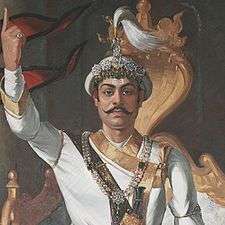

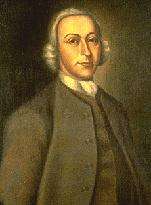
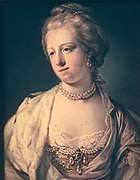
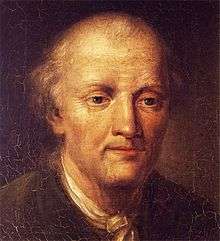
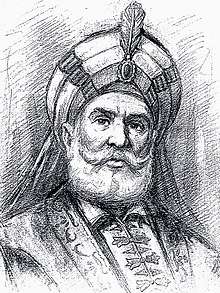
.jpg)
- January 1 – Ahmad Shah Bahadur (b. 1725)
- January 6 – Khawaja Muhammad Zaman of Luari, Sindhi Sufi poet (b. 1713)
- January 8 – John Baskerville, English printer (b. 1707)
- January 10 – Stringer Lawrence, English soldier (b. 1697)
- January 11 – Prithvi Narayan Shah, last ruler of the Gorkha Kingdom in the Indian subcontinent (b. 1723)
- January 13 – Johann Georg Walch, German theologian (b. 1693)
- January 14 – Peter Schenk the Younger, Dutch engraver and map publisher active in Leipzig (b. 1693)
- January 17 – Vincenzo Riccati, Venetian mathematician and physicist (b. 1707)
- February 2 – Sir John Rushout, 4th Baronet, England (b. 1685)
- February 5 – Eusebius Amort, German Catholic theologian (b. 1692)
- February 6 – William Dowdeswell, English politician (b. 1721)
- February 15 – Peter Dens, Belgian Catholic theologian (b. 1690)
- February 28 – Empress Xiaoyichun, of China (b. 1727)
- March 5 – Pierre-Laurent Buirette de Belloy, French dramatist and actor (b. 1727)
- March 6 – Job Baster, Dutch naturalist (b. 1711)
- March 21 – Thomas Penn, son of American colonial leader William Penn (b. 1702)
- March 22 – Peter August, Duke of Schleswig-Holstein-Sonderburg-Beck (b. 1697)
- March 30 – Christian Ditlev Reventlow, Danish Privy Councillor (b. 1710)
- April 14 – Countess Palatine Ernestine of Sulzbach, wife of Landgrave William II (b. 1697)
- April 19 – Isaac Davis, gunsmith and a militia officer who commanded a company of Minutemen from Acton (b. 1745)
- April 30 – Peter Harrison, colonial American architect who was born in York (b. 1716)
- May 1 – Israel Lyons (b. 1739)
- May 2 – Fredericka of Saxe-Gotha-Altenburg, German noblewoman (b. 1715)
- May 3 – George Boscawen, British general (b. 1712)
- May 10
- Marie Magdalene Charlotte Ackermann, German actress (b. 1757)
- Caroline Matilda of Great Britain (b. 1751)
- Caroline Matilda, British princess, queen consort of Denmark (b. 1751)
- May 18 – Magnus Beronius (b. 1692)
- May 27 – Louise Élisabeth de Bourbon, daughter of Louis (b. 1693)
- June 15 – Asa Pollard, American soldier (b. 1735)
- June 17
- Major John Pitcairn, British marine (killed in battle) (b. 1722)
- Joseph Warren, American Patriot, physician (b. 1741)
- June 21 – Charles, Prince of Nassau-Usingen (1718–1775) and Nassau-Saarbrücken (1728–1735) (b. 1712)
- June 23 – Karl Ludwig von Pöllnitz, German adventurer and writer (b. 1692)
- July 3 – Col. Thomas Gardner, political figure and heroic soldier (b. 1724)
- July 11 – Simon Boerum, American Continental Congressman (b. 1724)
- July 13
- Louis Charles, Count of Eu, grandson of Louis XIV of France and his maîtresse-en-titre Françoise-Athénaïs (b. 1701)
- John Ratcliffe, Master of Pembroke (b. 1700)
- July 21 – Szymon Czechowicz, prominent Polish painter of the Baroque (b. 1689)
- August 10 – Elihu Adams, soldier in the Continental Army during the American Revolutionary War (b. 1741)
- August 13 – Michał Fryderyk Czartoryski, Polish nobleman (b. 1696)
- August 21 – Zahir al-Umar (b. 1689)
- August 22 – Remember Baker, member of the Green Mountain Boys (b. 1737)
- August 27 – James Burgh, British Whig politician and writer (b. 1714)
- September 6 – Jean-Baptiste Bullet, French writer (b. 1669)
- September 13 – Klaas Annink (b. 1710)
- September 16 – Allen Bathurst, 1st Earl Bathurst, English privy councillor (b. 1684)
- September 17 – John Parker, American colonial farmer (b. 1729)
- September 23 – John Bentinck, officer of the Royal Navy (b. 1737)
- September 24 – Emanuel Büchel, Swiss painter (b. 1705)
- October 2 – Chiyo-ni, Japanese poet (b. 1703)
- October 3 – Cluer Dicey (b. 1715)
- October 13 – James Cholmondeley, British Army officer who also sat in Parliament (b. 1708)
- October 18 – Christian August Crusius, German philosopher and theologian (b. 1715)
- October 21 – Peyton Randolph, American president of the Continental Congress (b. 1721)
- October 22 – Peyton Randolph, planter and public official from the Colony of Virginia (b. 1721)
- November 4 – Luis Jayme (b. 1740)
- November 5 – Christian IV, Count Palatine of Zweibrücken, German noble (b. 1722)
- November 9 – Francisco Ximenes de Texada, 69th Grandmaster of the Knights Hospitaller (b. 1703)
- November 13 – Jeanne Camus de Pontcarré, French aristocrat and eccentric widow (b. 1705)
- November 21 – John Hill, English writer
- November 24 – Lorenzo Ricci, Italian Jesuit leader (b. 1703)
- November 25 – Richard Spry, Royal Navy officer who served as North America and West Indies Station (b. 1715)
- December 7 – Charles Saunders, British admiral
- December 9 – Robert Livingston (b. 1718)
- December 15 – Marie-Angélique Memmie Le Blanc, French feral child (b. 1712)
- December 28 – Petrus Albertus van der Parra, Dutch colonial governor (b. 1714)
- December 31 – Richard Montgomery, American general (killed in battle) (b. 1738)
References
- Warren, James Francis (1981). The Sulu Zone, 1768-1898: The Dynamics of External Trade, Slavery, and Ethnicity in the Transformation of a Southeast Asian Maritime State. Singapore: NUS Press. p. 36.CS1 maint: ref=harv (link)
- de Madriaga, Isabel (January 1974). "Catherine II and the Serfs: A Reconsideration of Some Problems". The Slavonic and East European Review. 52 (126): 34–62. JSTOR 4206834.
- "Battles of Lexington and Concord", Britannica Student Encyclopedia, p. 454, 2006,
The American Revolution began on April 19, 1775, with the Battles of Lexington and Concord.
- Scherer, F. M. (1965). "Invention and Innovation in the Watt-Boulton Steam-Engine Venture". Technology and Culture. 6 (2): 165–87. doi:10.2307/3101072. JSTOR 3101072.
- "The Invention of the Steam Engine: The Life of James Watt. Part 4: The Steam Engine Gains Popularity". About.com Inventors. Retrieved February 25, 2011.
Further reading
- Norton, Mary Beth. 1774: The Long Year of Revolution (2020). America to April 1775 online review by Gordon S. Wood
- Phillips, Kevin. 1775: A Good Year for Revolution' (Viking, 2012.

